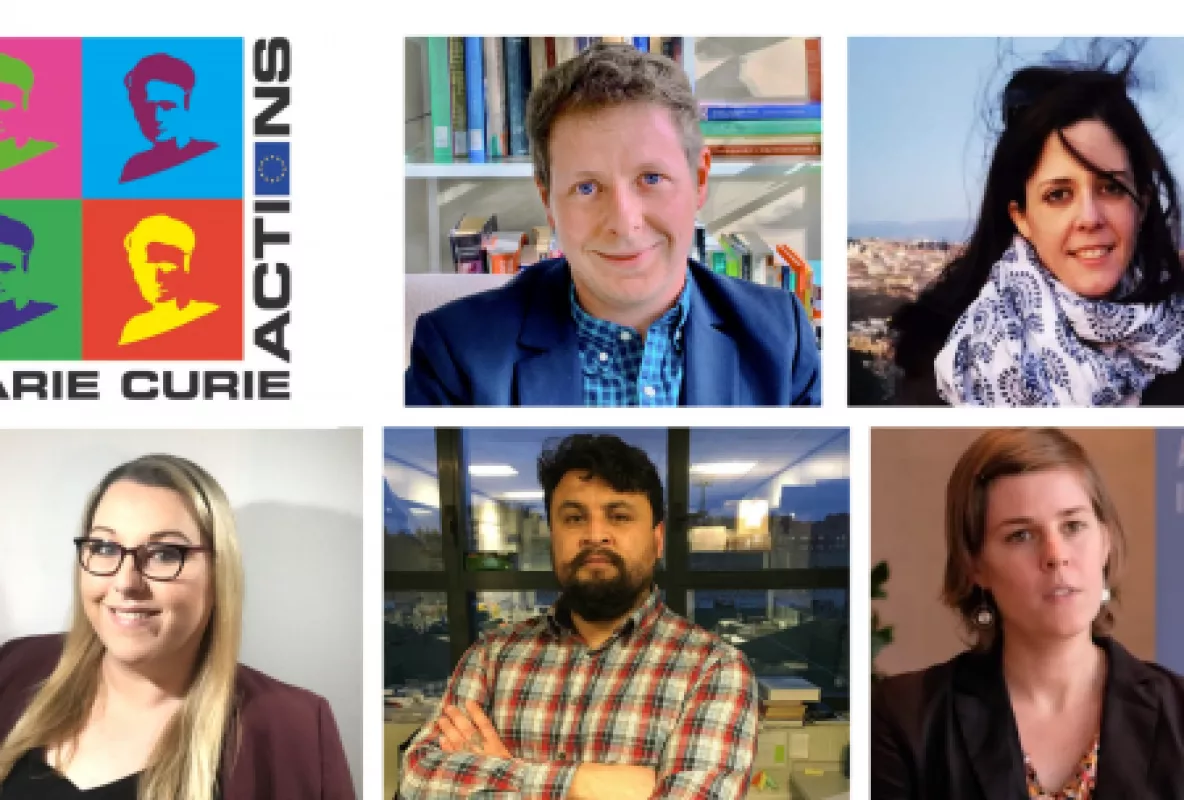
University of Limerick will this year welcome five new Marie Skłodowska-Curie Individual Fellows.
Three of the fellowships will be based in the Faculty of Science and Engineering and one each based in the Faculty of Arts, Humanities and Social Sciences and Faculty of Education and Health sciences.
These awards at UL have increased steadily in the past few years from one fellowship in 2016 and 2017, to three in 2018 and five in both in 2019 and 2020.
Professor Norelee Kennedy, Vice President Research at UL, said; “The European Commission received more than 11,500 proposals in the latest round of applications and across Europe around 12% of the applications were successful. UL’s success rate of 22% demonstrates the talent and hard work of our postdoctoral scholars, their mentors and dedicated support from the Research Office.”
Professor Kennedy added: “The success achieved is a witness to the strategic investment of the University in initiatives that support the attraction of Limerick for first-class research in Ireland as well as internationally.”
Meet the MCSA fellows:

Dr James Sargan is studying new scientific approaches to the study of premodern books. James gained his PhD at the University of Oxford and will join UL from the University of Toronto. He will work with Dr Carrie Griffin in the School of English, Irish and Communication.
“I’m excited to be coming to UL to carry out my research. The Bolton Library collection, which is currently under conservation at the University, presents a rare opportunity to integrate new analytical techniques into the study and care of premodern books. This work wouldn’t be possible without MSCA funding, which I couldn’t have obtained without the support of my project supervisor, Dr Carrie Griffin, and the Research Office.”

Dr Alison O’Connor will research how the operational lifetime of critical infrastructure can be improved through artificial intelligence. Dr O’Connor moves to UL from Imperial College London where she completed her PhD and postdoctoral studies in engineering structural integrity. Alison will work with Professor Noel O’Dowd as part of both the Bernal Institute and Confirm centre.
“I am profoundly honoured to have received a Marie Skłodowska-Curie fellowship and many thanks are due to colleagues at UL and Imperial for their continued support and encouragement. As an undergraduate alumni of UL, I'm delighted to be re-joining such an innovative, collaborative and supportive environment. My goal is to become a leading academic and this fellowship award will enable me to launch an internationally recognised, industrially relevant research career that will enhance my future career prospects.”

Dr William Cheuquepan Valenzuela, originally from Chile, will develop a novel, disruptive and sustainable approach to photoelectrocatalytic carbon dioxide (CO2) reduction. The aim is to achieve an unprecedented control of the degree of photo-reduction of CO2 to high-value hydrocarbons in a biphasic system. He will join Dr Micheál D Scanlon’s group in the Department of Chemical Sciences and the Bernal Institute.
“I am excited to have the opportunity through this prestigious fellowship to explore the topic of CO2 electrocatalysis, a long-term dream of mine. This fellowship will open new opportunities to learn advanced scientific skills using the world-class facilities in the Department of Chemical Sciences and the Bernal Institute at UL. The support of the UL Marie Curie service and my mentor, Dr Scanlon, was fundamental to my successful proposal preparation.”

Dr Julia Alvarez-Malmagro will develop a prototype 3D printed bio/reactor for the controlled production of pharmaceutical materials in a stand-alone environment. She will join Prof. Edmond Magner and Prof. Vivek Ranade´s groups in the Department of Chemical Sciences and the Bernal Institute. Dr. Alvarez-Malmagro completed her PhD in spectroelectrochemistry at the University of Seville, Spain.
“This renowned fellowship is a great opportunity that will provide me with new and additional research expertise in biocatalysis, materials science and in modelling to tackle an ambitious and multidisciplinary project. I received excellent support from Professors Magner and Ranade as well as from the Marie Curie officer at UL. I believe that the MSCA Fellowship will enable me to achieve my goal of becoming an independent research group leader.”

Dr Aurélie Van Hoye will research health promoting sports club’s policies. Dr Van Hoye completed her PhD at the University of Grenoble-Alpes and is Associate Professor at the University of Lorraine. She will work with Professor Catherine Woods in the Dept Physical Education and Sport Sciences.
"This fellowship is a unique opportunity to extend my ambitious project studying health promoting sports clubs, which support sports clubs to fully develop their potential in regard to mental, physical and social health and to the community. The excellent support from Professor Catherine Woods will help me to acquire new skills to establish my career in academia.”
Would you like to apply in 2021? Find out more here.
Marie Sklodowska-Curie Fellowships are salary and mobility funds for researchers who want to enhance their career through an academic residency abroad. The programme is part of the EU’s Horizon Europe research framework programme. Researchers apply for grants in collaboration with the academic host teams in which they will be working. The fellow conducts research at a European or worldwide institution for 12–24 months, or 36 months in the case of a global fellowship. This EU grant is valued at around €200,000 per fellowship.
A new announcement for the fellowship grants is expected in April 2021, with an application deadline in early September.
Contact your supervisor at your faculty or department to apply.
For the Marie Curie call each year UL organises an intensive training aimed at selected candidates for the Marie Curie Individual Fellowships scholarships who choose Limerick as their research host. Each spring, the selected participants meet their research groups at the University, learn about the research infrastructures and take part in specific training learning the most effective ways to submit their application.